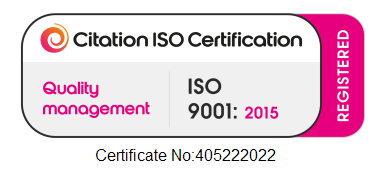We have seen a sharp rise in outsourcing business functions since the pandemic. Research shows that the global contact centre outsourcing market is expected to grow at an annual growth rate of 4% between 2021 and 2028*.
A Business Process Outsourcing Company or BPO is not just a call centre, it works as a multi-media extension to a client’s business and more importantly as part of their team. A call centre is mainly focused on resolving customer queries and although it is a subset of a BPO company it usually involves only phone work. A BPO includes call centre services along with other outsourced back-office tasks ensuring a customer focus driving service.
Customer behaviour is changing and organisations understand the need for personalising the customer experience, one size does not fit all anymore. This is creating competition and there is no shortage of companies to choose from. There is a requirement for constant improvement and better management, understanding the true voice of the customer is the key to success. BPO’s become a vital point of contact between consumers and brands that can drive perceptions and loyalty.
Investing into the right people helps build brand advocacy which drives better outcomes for the client. Customers want to speak to well-trained brand experts and be able to carry on their conversations and not have to start again each time they interact. They want to feel they are talking to the brand and not to an external partner.
Staff retention is vital, building a positive moral around staff ensuring that the business and the client benefits from incremental skill development which is as important as the bottom line. Mental health is a big topic and seeking evidence of a working wellness policy can be at the top of the agenda for many companies considering outsourcing. Some clients provide mental health coaches on many accounts that have particularly challenging customers, although these are not health care professionals, they are there to support staff after a difficult call. All staff must be valued, they are assets and need to feel they have a long-term career path in a BPO rather than filling in a job.
Technology and future Customer Experience requirements
Digital transformation has changed what companies require from their BPO partners. In the age of insights, using technology to gather, store, analyse and create engaging experiences is vital to customers. It is predicted in 2022 companies will prioritise accessibility more than ever before to stay competitive.
By investing in technology and using digital platforms organisations will subsequently improve their overall experience delivering strong brand recognition. In April 2021, the CCMA ran a study that showed that individuals aged 55+ are 15% more likely than those aged 18-34 to access customer service over the phone. In addition, 18-34-year-olds are more likely than those aged 55+ to use a chatbot.
Neil Titcomb, Managing Director UKI at Odigo has said: “The last twelve months have been unprecedented for the customer experience industry. Agents have been dealing with a huge increase in call volume amid a very complex backdrop. Despite this, CCMA’s research shows promising progress; customers believe service has improved, the phone remains the preferred channel of choice and self-service is on the rise”.
Live telephony Agents
The CMMA’s study found the demand for human interaction is still very high and has remained so through the pandemic. Speaking to a live telephony agent on the phone remains the most popular customer channel experience. The study revealed that phone is used by 71% of people. Additional methods of customer service are seen to be complementary to the phone, and are adopted at different speeds by different age groups
Self Service
The self-service experience is becoming more popular with placing orders or getting delivery updates although it’s not clear if this is the result of businesses driving for cost savings or customer demand. Research is showing self-service delivery is on the rise. This trend is likely to continue as more consumers become more confident in these new technologies, and it improves and innovates. Unsurprising, for more complex requirements such as refunds, billing and complaints, most people still prefer to be assisted by a qualified, empathetic agent.
A good contact strategy can decide what needs automating and what doesn’t. Understanding the intent around a call and whether it needs responding with a voice or a chat gives the customer a choice rather than enforcing it.
5 top tips to consider when outsourcing to a BPO include:
Ensure the customer experience strategy is believable, achievable and repeatable.
Expertise – invest in training and brand embedment using specially trained brand agents.
Collaborate with your outsourcing partner to share and improve outcomes, encourage open discussion of issues as well as successes, its the basis for continual development.
Listen to your BPO providers advice – outsourcers work with many other brands and build up case studies you can benefit from other businesses experiences.
Build a model that best fits your customers first and foremost, your business benefits will follow.
The advantages of using an onshore to an offshore BPO
The ability to safeguard customer privacy using offshore contact centres is in question. UK telecommunication regulator, Ofcom recently reported the importance to work with the biggest telephone networks to ensure calls made from abroad are blocked if they pose to be from a UK number.
Leading businesses who outsource their contact centres are moving their operations back to the UK to be better protected as well as avoid any negative PR. Research also shows that businesses are willing to pay more for an onshore contact centre if it results in better service for the customer.
Recognising the long-term value of building good customer relations is a key reason why so many companies are moving contact centre operations back to the UK.
Outsourcing to teams in other territories can lead to a notable difference in the customer experience. Language differences and noticeable accents could negatively impact customer relationships if issues are needlessly complicated on this basis alone.
Ensuring the talent pool in charge of handling your workload are well-versed in your customers’ native tongue can help to curb problems with comprehension on both ends.
What differentiates BDM Talk?
Our focus is to deliver a comprehensive range of solutions to benefit your business offering our customers a quality service, fulfilling digital requirements and using a local workforce with cultural knowledge.
We are experiencing a high number of inbound enquiries from businesses who are struggling to retain and recruit staff into their own customer contact centres at the current time. Outsourcing to businesses such as ourselves takes away all the staffing headaches, as these become our responsibility under the terms of any contract. In short, we have to deliver no matter what. A high number of businesses are finding this approach, in terms of using a contact centre, much more time efficient and cost effective.
BDM Talk offers:
A partnership: We set up a true stakeholder partnership with our clients. The service we provide is believable, repeatable and achievable.
Personalised: Customers require a good customer journey and do not want to repeat themselves so having the ability to transition from chat to telephony gives the customer a more seamless experience.
Tailored: We listen to our partners/customers; we are a true voice and are always thinking what can we do better. We listen to what the customer wants and tailor our strategy around this therefore building strong and long-lasting relationships with our clients.
Get in touch today with one of our friendly experts and get a free quote by calling 0330 159 2626, or by following the link below you can arrange a call-back.
Customer contact with BDM Talk is limitless… innovative… scalable… cost-effective.


